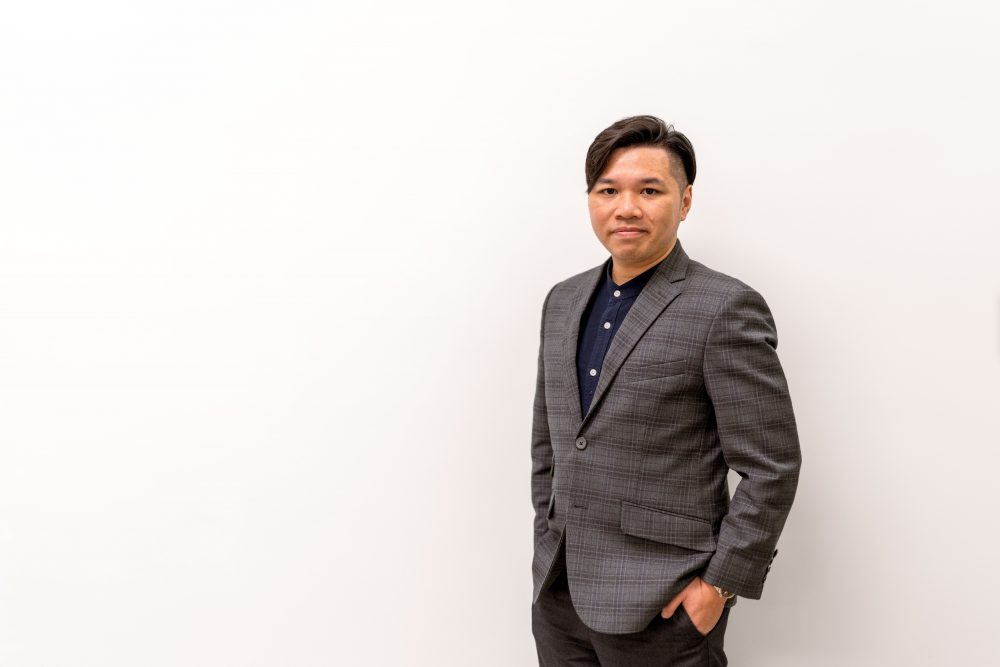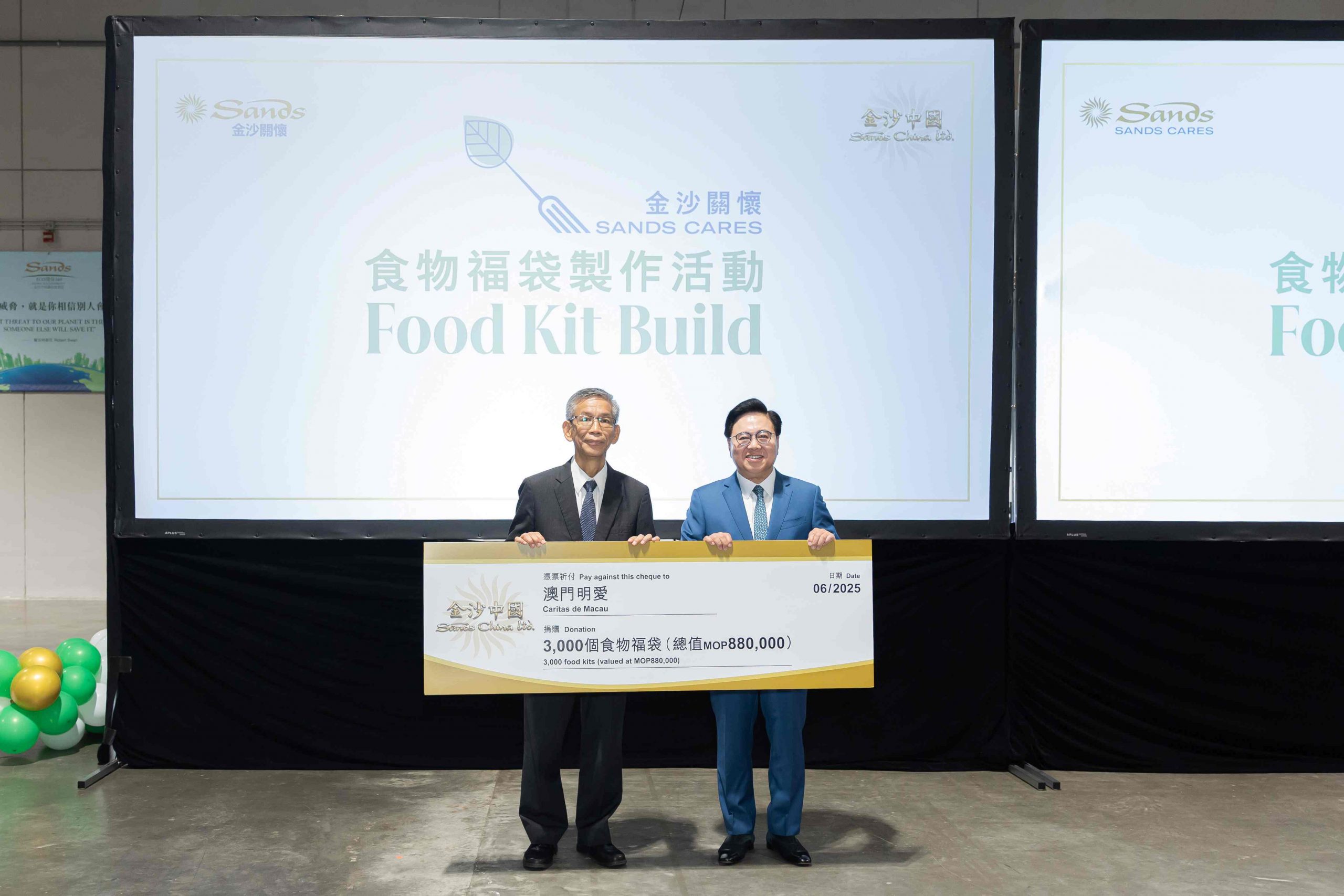Stephan Chan, Managing Director of the Diocesan Catholic Education Commission
Marco Carvalho
Catholic schools are undeniably a very important part of the educational landscape of Macau. What sets Catholics schools apart from the other educational institutions?
Stephen Chan Teng Fong: The biggest difference between non-Catholic schools and us is that our campus life is designed to allow students to witness the presence of God, particularly in the aspect of values education. We cultivate students based on the faith of Christ, helping them to understand and learn the values and virtues of the Catholic faith, thus enabling them to adopt these attitudes in their interactions with the others.
Generally speaking, only a fraction of the students currently enrolled at Catholic schools are Catholics. How challenging it is to convey Catholic values and attitudes to children and youngsters with little or no knowledge of the faith?
S.C.T.F: In our role of educators in a Catholic school, we have faith in God’s plan, even when challenges arise. He has entrusted these students to us because we believe we have the ability to help them come to know God. Most Catholic schools offer a comprehensive education, spanning kindergarten, primary and secondary levels. We start early in helping students experience a prayerful life, participate in Mass and teach religious studies using age-appropriate methods. In practical terms, there aren’t significant difficulties because these aspects are integrated into their school experience. Furthermore, campus life is distinct from parish-based faith nurturing, so after a few years studying with us, students generally grasp the values of the Catholic faith.
In an increasingly competitive society, what would you say the main mission of Catholic schools should be?
S.C.T.F: Our greatest mission is to help students understand that “goodness” should be the foundation of their decisions in their interactions with the others, throughout their life. We believe that, if the majority of society embraces this quality, it will pave the way for ongoing societal advancement and serve as a safeguard to “deliver us from evil”.
There are currently 26 Catholic schools in Macau. Overall, how many students will be enrolled in these schools in the new academic year that started earlier this month? Did this number increase or decrease over the last few years?
S.C.T.F: While we do not yet have the figures for the 2023/2024 school year, historical trends suggest a continued growth in student enrolment. Specifically, the 26 Catholic schools registered under 41 sections or campuses with the DSEDJ (Education and Youth Development Bureau) have consistently demonstrated an upward trajectory. In the 2022/2023 school year, these schools accounted for 31,004 students out of a total of 87,184 non-tertiary students in Macau. This represented a 1.98 per cent increase from the 30,403 students registered in the 2021/2022 academic year. Notably, that figure had also grown by 1.90 per cent from the 29,836 students registered in 2020/2021, which itself marked a 2.60 per cent rise from the 29,079 students in the 2019/2020 school year.
Forty teachers were commended for their services to Catholic education earlier this month. Is it easy to find teachers and professionals well versed in Catholic values? Or is hiring and maintaining teachers, who are able to strengthen the identity and mission of Catholics schools, increasingly difficult?
S.C.T.F: I believe that the vast majority of teachers are both: professional as well as possess ethical standards. Before they join our schools, we are transparent in informing them that our school is a Catholic school dedicated to transmitting Catholic values. They are aware of the school’s stance and principles. With this foundation, it isn’t challenging to hire teachers who understand Catholic values. One possible reason for this might be that many of our teachers graduated from Catholic schools, and they identify with our core values and our beliefs.
As for the aspect of strengthening the identity and mission of Catholic schools, it depends on whether school leaders provide opportunities for teachers to deepen their understanding of the Catholic faith and values. It also depends on teachers’ willingness to actively engage in this process. In recent years, we have seen an increase in the number of teachers who are interested in learning about Catholic faith and receiving baptism, which is a positive development.
In an ever-changing Macau, what would you say are the biggest challenges that the Catholic schools face?
S.C.T.F: I believe the challenges we face today are not unique to Catholic schools. They are challenges that the entire education sector must face. Changes in family structures, such as dual-income and single parent households may result in students with lacking parental support and companionship. Their emotional side is something that schools should pay closer attention to. However, the way faith is fostered in Catholic schools can be an advantage because it can teach students to have hope in life through the power of faith. Even when they face difficulties and anxieties, they can learn to entrust them to God, allowing students to experience inner peace through their faith.
How is patriotic education being implemented in Macau’s Catholic schools?
S.C.T.F: The return of Macau to Chinese sovereignty took place 24 years ago. In terms of the curriculum, Catholic schools are like other schools: they make use of the “Moral and Civic Education” textbook. Schools also teach students to raise the national flag and sing the National Anthem. Catholic schools in Macau are private schools operating in the Macau S.A.R. under the law, so we have a responsibility to promote patriotic education.
You are also supervisor at the Colégio Diocesano de São José, which has launched a new English-language college. CDSJ No. 2 represents a new venture in terms of Catholic Education in Macau. How many students did the school manage to attract in this first year?
S.C.T.F: The establishment of a new English section relies on the efforts of various parties and we would like to express our gratitude for the support and assistance from DSEDJ. The English section has two classes with about 48 students at the moment, half of them former sixth-grade students from our school. The other half are new students, mostly from other Catholic schools.
What are the challenges that the school expects to face in the coming months?
S.C.T.F: As it is a new section with new students and a new campus, the past weeks have been relatively running smoothly: the teachers are working on integrating students from various schools currently. Additionally, since it’s an English-based school, creating an atmosphere of foreign language communication is a key focus. However, many new students previously attended Chinese-based primary schools. Teachers are working hard to encourage them to speak more in English, and we believe that with time, the students will gradually adapt to this environment.
Lastly, how is the Diocese of Macau planning to strengthen the identity and mission of local Catholic schools? Are there any relevant reforms being planned?
S.C.T.F: Macau Diocesan Schools began a reform plan a few years ago under Bishop Lee. They invited education experts to join the board of directors, we invited the involvement of parent and teacher representatives on the board, even before it was mandated by the government, showing the democratization of the school and allowing more capable individuals to contribute to the development of the school. During the process, we provided them training with Catholic core values and the distinctive characteristics of Catholic education. This is crucial to ensure that the school’s development strategies and policies are rooted in the core beliefs of Catholicism, starting from the top leadership. Additionally, Bishop Lee visited all Diocesan schools and several Catholic schools this year, delivering lectures on “The Vatican Responds to Gender Theory: Male and Female He Created Them”, providing, thus, the perspective of the Catholic Church in gender issues. In the future, we plan to organize annual lectures for all teaching staff, introducing them to the Catholic Church’s positions and perspectives on various societal issues to strengthen the development of Catholic school characteristics and missions.


 Follow
Follow


